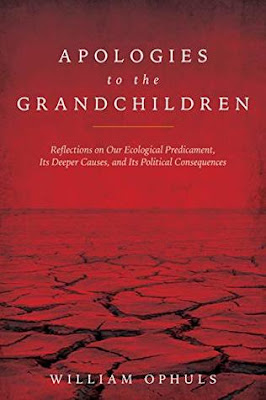[C]rowds are moved by simple ideas, striking images, and repeated slogans that drive out deeper thought. To make matters worse, the anonymity of crowds induces individuals to behave viscerally, discarding both prudence and morality. In addition, because crowds are moved by images that are not logically connected or rooted in fact, members of crowds have a hard time distinguishing between reality and illusion. Thus, said [Gustave] Le Bon, Crowds are only powerful for destruction. Their rule is always tantamount to a barbarian phase. A civilization involves fixed rules, discipline, a passing from the instinctive to the rational state, forethought for the future, an elevated degree of culture—all of them conditions that crowds, left to themselves, have invariably shown themselves incapable of realizing.
Thomas Hobbes became the author of modern political economy by abandoning virtue as the purpose of politics and making economic development into the end of government.
I do not attempt to ‘explain’ experience at all in the causative sense. Nor do I invoke the brain in order to tell us what experience ‘really is’, which it never could, but to illuminate the constraints on our understanding, which it can.
The point is that we shouldn’t allow the ongoing work of overcoming modernism’s pathologies to alienate us from the real transcendence that modernist values continue to offer.
Here are two criteria [for choosing a path into the future:] any path we choose should take us towards a future that’s likely, as best we can judge, to be enough to genuinely reduce the danger humanity faces; and, second, the path should also be feasible, in the sense that it gives us a good chance of reaching that desirable future, which means surmounting or bypassing likely political, economic, social, or technological roadblocks along the way. These criteria are often at odds, leaving us trapped in what I call the enough vs. feasible dilemma.
The emerging infectious diseases paradigm, proposed by scientists from the 1970s onward, was, like the models of climate change and earth systems ecology that emerged at the same moment, a profound critique of our modern way of life, our economy, and the social system built on it.
Hayek assembled a ferocious, scholarly attack on Keynes and the New Deal, not as an empirical analysis or a work of economic theory but as a political treatise. The book, titled The Road to Serfdom, would in time be recognized as a foundational text of modern conservatism, though Hayek resisted the label all his life. To Hayek the word conservative connoted the “paternalistic, nationalistic, and power-adoring tendencies”4 of British Tories. He preferred to think of himself as a “classical liberal” inspired by Locke, Hume, and Smith—many of the same figures who animated Keynes. Keynes had tried to redefine liberalism for the twentieth century with The End of Laissez-Faire, sketching ideas that came to fruition in the New Deal; Hayek wanted to offer an alternative liberal vision.
While I would never discount the great achievements that Western medicine has given overall to human health, if we spent half as much money and time trying to invent a better placebo—or, maybe more accurately, better ways to train our immune system to protect our bodies—we’d likely discover entirely new ways to treat disease. This is, of course, where it’s beneficial to consider the relationship between the environment and human physiology as a wedge to help control and strengthen the immune system itself.
[Aby] Warburg’s theory of culture, which was based primarily on the medium of the image and pictorial representation, the human urge to give symbolic expression to our deepest and most existential anxieties—to give them a solid form and by doing so to make them amenable to innovation or treatment—is actually the source of all culture and learning. Even in its most sublime and abstract achievements, in art and science, the human mind can never entirely overcome culture’s origins, the feeling of existential anxiety and of being subject to the overwhelming forces of nature that, we suppose, surround us and overpower us.








